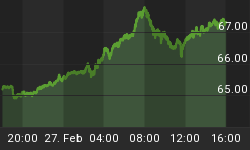At its monthly press conference, European Central Bank (ECB) President Trichet was assertive in calling for fiscal discipline in its 16 member states that comprise 330 million people using the euro. Asked about bailing out Greece or other member states with severe fiscal challenges, Trichet called the ECB collateral framework crystal clear, applying erga omnes (equally) to every member state; no special treatment will be provided to any one member. In the euro zone, member states may receive funding from the ECB by posting collateral, but only if their debt is appropriately rated by the major credit rating agencies.
Comparing the euro zone to the United States in size and diversity, Trichet said that there are always more competitive and less competitive regions. Being part of the euro provides benefits, such as easy funding of current account deficits, as well as a credible currency. Beyond that, it is the responsibility of member countries to do their job to conduct structural reform. It is in the interest of member countries to help themselves.
Asked about any threat to the euro because of Greece's problems, Trichet pointed out that Greece's Gross Domestic Product (GDP) is a mere 2.5% - 3% of the euro zone GDP. In California, which has its own set of severe fiscal challenges, the magnitude of the problem is far larger (California's GDP is over 12% of U.S. GDP). He went on to stress that euro zone budget deficits currently amount to about 6.5% - 7% in the aggregate, compared to 12% in the U.S.
Asked about the strong euro, he reiterated the importance that the U.S. be committed to a strong dollar and a monetary policy inspiring confidence. Given the statistics highlighted by Trichet, it is fair to assume that he would like to see more fiscal and monetary restraint in the U.S. While it would not be appropriate for Trichet to directly comment on fiscal or monetary policy in the U.S., he was more assertive than ever in calling for fiscal discipline within the euro zone. He reminded member countries that achieving deficit targets is not merely a goal or request, but a requirement. He cautioned that tax cuts should be considered only in the medium term once an exit strategy for fiscal emergency spending programs is in place.
While giving very little guidance on interest rates and upcoming monetary policy, a noteworthy comment of his was that an increase in indirect taxation in countries' efforts to achieve fiscal consolidation may pose a threat to economic growth.
Trichet said that the ECB, along with other central banks and governments have taken bold decisions to avoid a depression; the situation had been very, very grave and there are still a lot of problems. Commenting on financial reform, Trichet said the Asian crisis showed it is very important that banking supervision should be independent of government.
While many are concerned about the rising spreads in sovereign debt in countries such as Greece, we welcome the increased scrutiny the market gives. If anything, spreads that had been too narrow for too long have allowed euro member countries to postpone structural reform. The market is finally correcting this key flaw in the design of the euro. California in the U.S., too, shares a single currency with millions of others; but California is rightfully paying a higher price to finance its spending than other, more fiscally responsible states. In the euro zone, fiscally responsible countries are finally rewarded through a lower cost of financing their debt than their less prudent peers. There is a limit to how much the ECB can police fiscal spending; but the ECB can allow the market to punish those who are fiscally less responsible. Only then are the incentives provided for structural reform and fiscal restraint.















